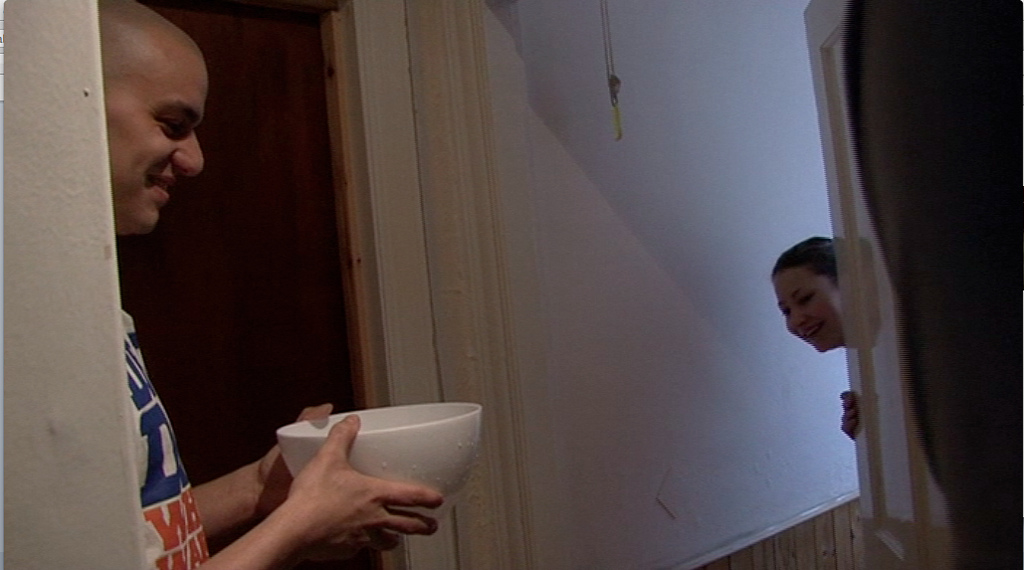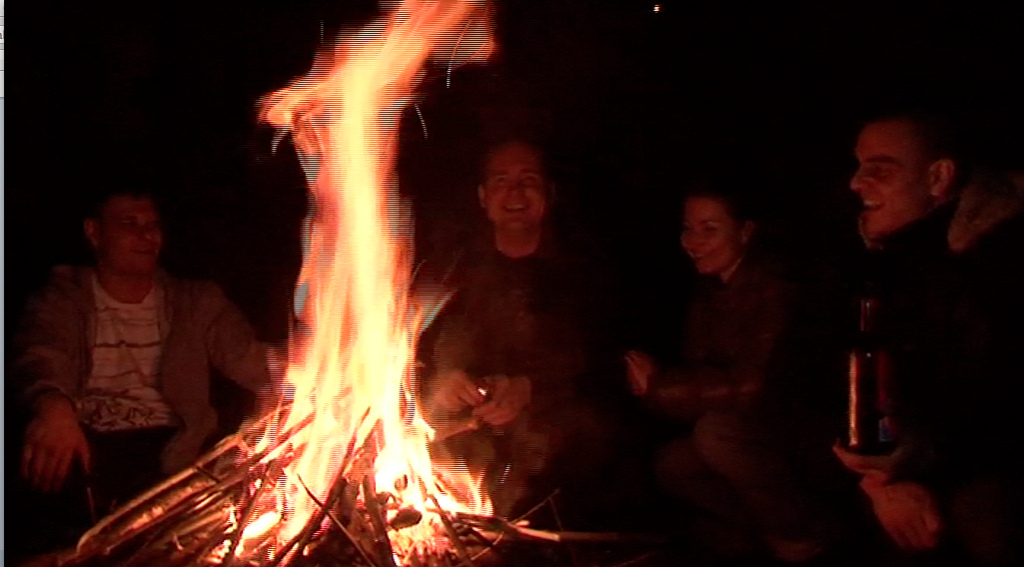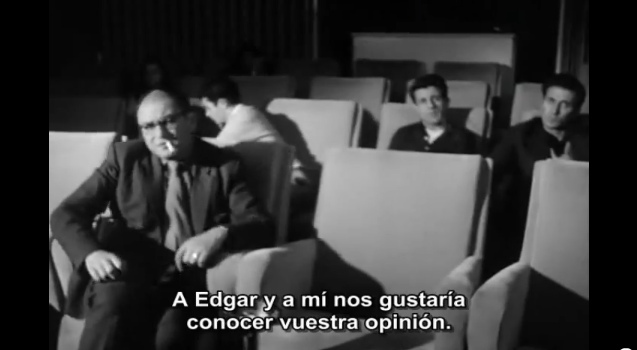During the production of my latest short film for class, my partner Rae and I have been faced with quite a lot of criticism of our subject and many of the choices that we have had to pilot.
This film we are making is mostly about a group of young Slovakian immigrants living in Manchester, working and socializing in the city as they navigate British culture while still managing and respecting their own culture.
A feature of the film will be an event that happens the day after Easter, on Easter Monday, where young men will splash water on young women and whip their backsides with willow branches. For any of you who are not familiar with this Easter tradition, click here for a video to get the idea.

Traditionally, the fathers of the young women would give a shot of alcohol to each of the men who whipped his daughter, and then the men would move on to the next house. However, as none of the parents of our participants live here, in Manchester, the event took place in one place, their house, in a suburb of Manchester. This event is supposed to be filled with happiness, excitement, and joy; the whipping symbolizing health, and the water, cleanliness.
Worried about the first wave of criticism we received initially during the shooting of the film, we talked to some of our coursemates about it. Through our discussions, I felt relief as I came to the conclusion that our film isn’t sexist, rather, some audiences’ interpretations of the tradition may be sexist. Rae and I never made it an objective of ours to set out and crusade for a feminist film. We never formulated some plan of creating a film about gender roles in Slovakian practices or about female identity and issues in a male household.
This brings me back to one of my favorite articles of all time, a piece by Henry Bagish on cultural relativism. Click here to read, though a bit lengthy, it’s an easy and fascinating read, especially if you’re new to the world of anthropology. If you already subscribe to the idea of cultural relativity, it will give you something new to think about.
In a week, we begin subtitling our film, which is becoming an ethical issue within its own right. The film is about one-third in Slovakian and two-thirds in English. While we’ve had the Slovakian that we’re using translated, the question of whether or not to translate the remaining English is still being decided.

We want to respect the voices of our characters and their particular language abilities, but we also want to ensure that our English-speaking audiences can fully understand our characters, and thus appreciate the film and the value of their dialogue. While there are problems with vocabulary and pronunciation at times, the largest technical issue here is with tenses, as our characters often mix up their verb tenses and meaning is lost in temporal contexts.
After subtitling, the final leg of our film is our class screening, from which the ultimate criticism will come. Out of respect for our subjects, we would like to screen our film to them first, before the final cut, to gain their approval and consent, which, as obvious and necessary as it may sound, was not that common in documentary too long ago.

Then-controversial Jean Rouch established the participant feedback method as a common method in documentary cinema
Screening films back to your participants and subjects also opens up a discussion amongst themselves and allows for self-reflection and analysis; an instrument of collective self-recognition.
After thinking about all of these issues surrounding the film, it brings me to thinking about agenda and audiences. It is imperative to remain conscious of the fact that my main audience is the Slovakian household, and I will respect them first. Then myself, as the anthropologist and author, then my peers, professors, and anthropological community third, and finally, the general public, fourth.
 Since the initial commentary, we’ve faced criticism from our mentors, peers, and complete strangers about the tradition, about their house, about their relationships with each other, and even about their cat. Through this criticism, I’ve been learning to defend my choices not only in this film, but in my summer film and course texts, as well.
Since the initial commentary, we’ve faced criticism from our mentors, peers, and complete strangers about the tradition, about their house, about their relationships with each other, and even about their cat. Through this criticism, I’ve been learning to defend my choices not only in this film, but in my summer film and course texts, as well.
What’s to come?
Stick around here. I’ve got a whole summer of fieldwork on a rural English farm ahead of me. I’ve never been on a farm in my life, much less milked a cow or driven a tractor, but following the participant-observation tradition in anthropology, I have a feeling I’ll be in for a lot this summer. So, like I said, stick around for updates on the Slovakian film and then for bigger and better things on the farm this summer.
Tarah!




 Since the initial commentary, we’ve faced criticism from our mentors, peers, and complete strangers about the tradition, about their house, about their relationships with each other, and even about their cat. Through this criticism, I’ve been learning to defend my choices not only in this film, but in my summer film and course texts, as well.
Since the initial commentary, we’ve faced criticism from our mentors, peers, and complete strangers about the tradition, about their house, about their relationships with each other, and even about their cat. Through this criticism, I’ve been learning to defend my choices not only in this film, but in my summer film and course texts, as well.
The film sounds very interesting. I’m Slovak and I know all about the water and whips tradition (which I’ve experienced and is very good natured). I’ll definitely keep me eye out for more on the film, it’d be nice to see the perspective you and the participants take. Good luck!
Thank you for the comment, Lilia, I’ll definitely post more updates, and, hopefully, the finished film soon!